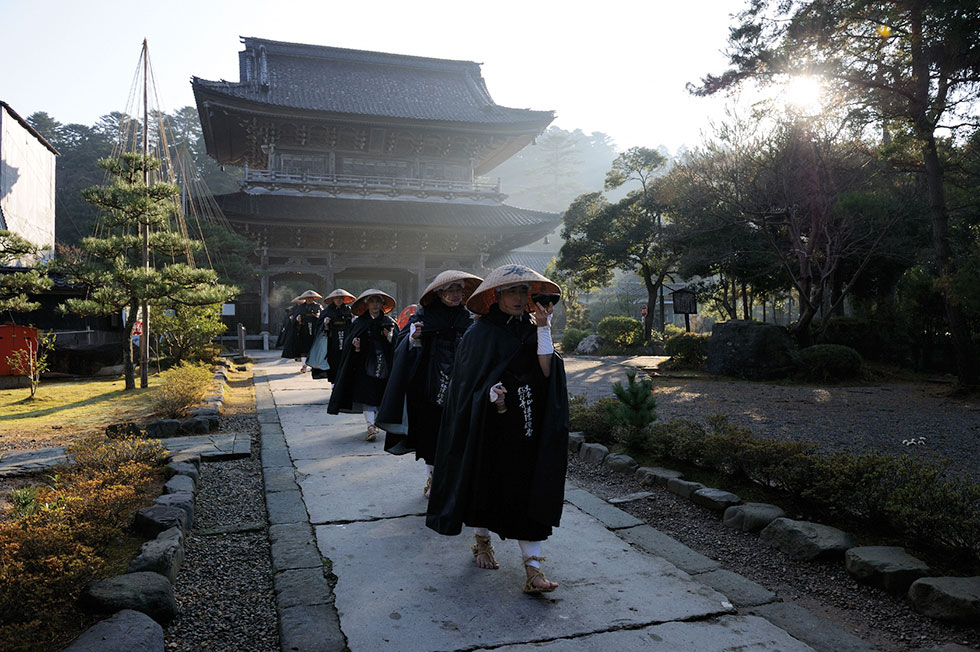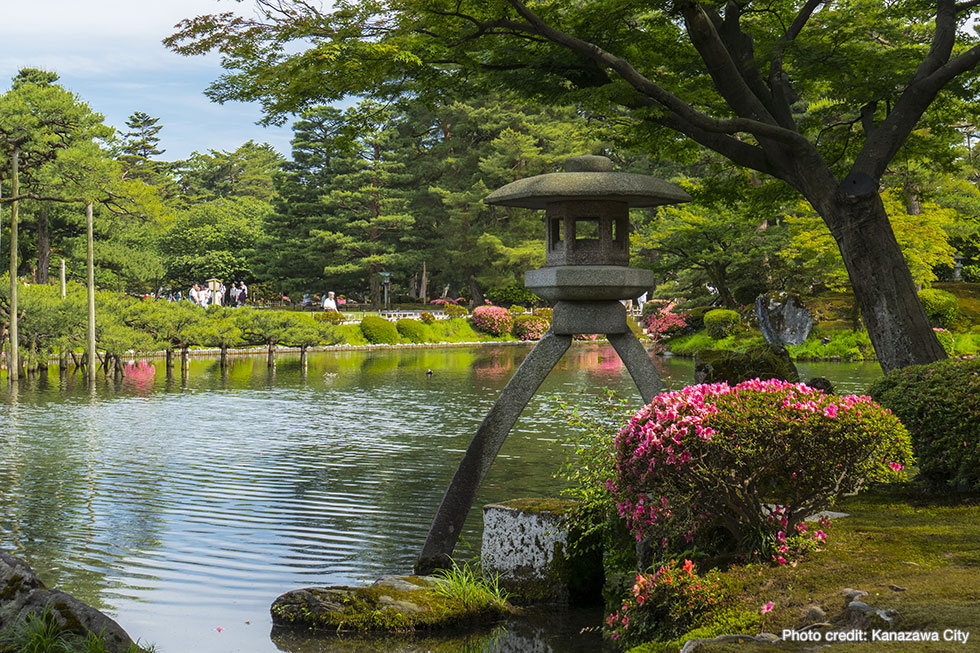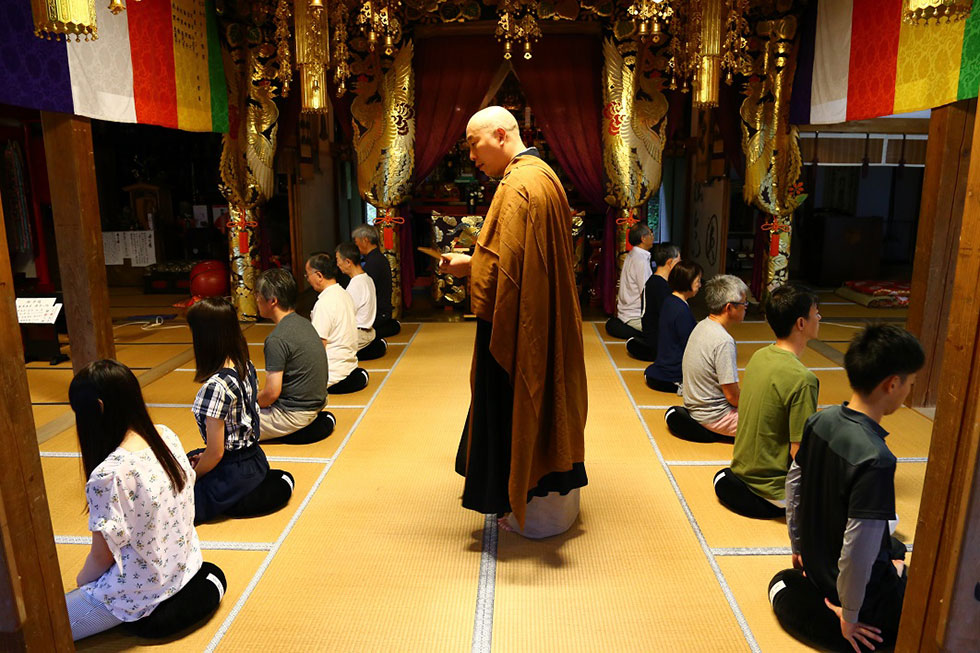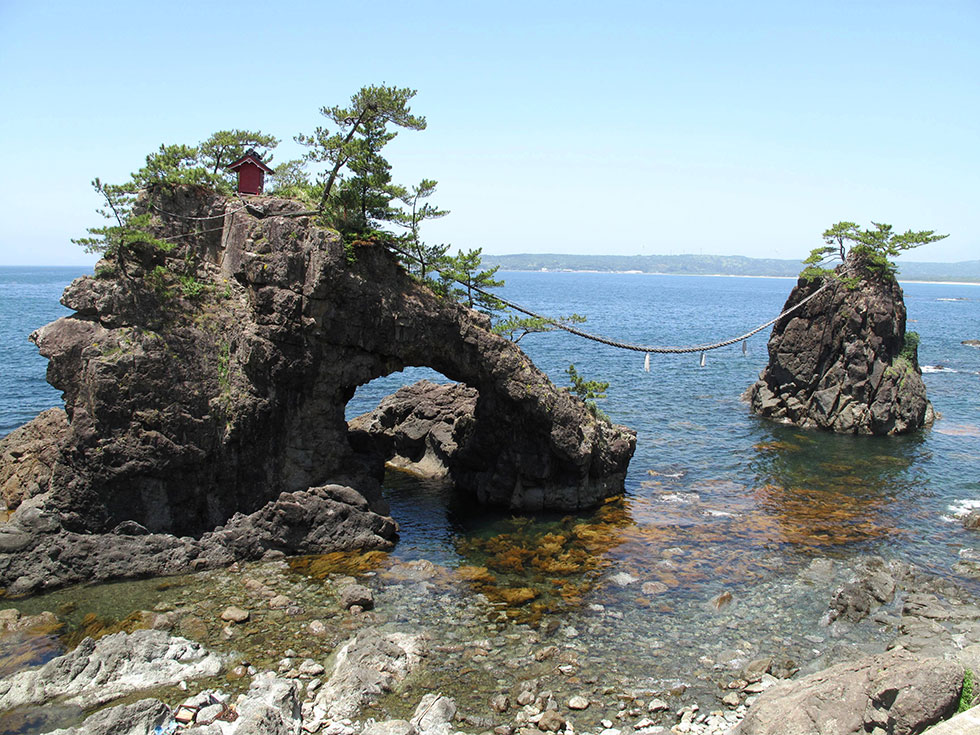Experience True Zen in Hokuriku
Hokuriku
 Synonymous with tranquillity, Japan has long been visited by those seeking a window into the practices of Zen Buddhism. From delicate rock gardens to calming sutras, the opportunity for spiritual experience is abundant.
Synonymous with tranquillity, Japan has long been visited by those seeking a window into the practices of Zen Buddhism. From delicate rock gardens to calming sutras, the opportunity for spiritual experience is abundant.
Kanazawa, a city known for gold and gardens, is a little-known hub of Zen belief, offering unique opportunities to engage with ancient practices. Meaning “marsh of gold” the city’s name was derived from the legend of a local peasant washing potatoes and discovering gold. Around 500 years ago, the Buddhist Ikko sect established a government in the city and after battles and wars, the city flourished after the Meiji Restoration, becoming the capital of Ishikawa. This long tradition of Buddhist governance has left a significant impression on the city, making it the perfect place for an exploration of the traditions involved.
 For beginners, a simple two-day course will explore Kanazawa’s past and present, along with options to explore the neighbouring cities of Fukui or Wakura. One highlight is Kenrokuen Garden, considered one of the most beautiful landscape gardens in Japan. Once the outer grounds of Kanazawa Castle, the expansive grounds now hold historic monuments, plum groves and tea houses amid the ponds and paths winding throughout. Meaning “the garden of six sublimities,” Kenrokuen features the six elements required for a perfect garden: abundant water, antiquity, artificiality, broad views, seclusion and spaciousness. Ideal for quiet contemplation and the consideration of aesthetic concepts deeply connected to Buddhism such as wabi sabi, the garden is unforgettable.
For beginners, a simple two-day course will explore Kanazawa’s past and present, along with options to explore the neighbouring cities of Fukui or Wakura. One highlight is Kenrokuen Garden, considered one of the most beautiful landscape gardens in Japan. Once the outer grounds of Kanazawa Castle, the expansive grounds now hold historic monuments, plum groves and tea houses amid the ponds and paths winding throughout. Meaning “the garden of six sublimities,” Kenrokuen features the six elements required for a perfect garden: abundant water, antiquity, artificiality, broad views, seclusion and spaciousness. Ideal for quiet contemplation and the consideration of aesthetic concepts deeply connected to Buddhism such as wabi sabi, the garden is unforgettable.
 At Daianzen-ji Temple in Fukui or Seirin-ji Temple in Wakura, guests can practice zazen—seated meditation. An ideal introduction to the ways of Buddhism, it is a core virtue for any Buddhist, new or experienced, and allows guests to learn a vital skill for reflection in everyday life.
At Daianzen-ji Temple in Fukui or Seirin-ji Temple in Wakura, guests can practice zazen—seated meditation. An ideal introduction to the ways of Buddhism, it is a core virtue for any Buddhist, new or experienced, and allows guests to learn a vital skill for reflection in everyday life.
For those following the intermediate course, a night will be spent at the shukubo (temple lodging) of Noto’s Soji-ji Soin—an ancient ancestor temple founded by Zen master Keizan Jokin in 1321. Joining the resident monks with their daily rituals and practices, guests can experience a true insight into the ways of Zen. The following day, visitors can explore Kenrokuen and the unique D. T. Suzuki Museum. Celebrating the ideas and works of a prominent Buddhist philosopher, the museum is the perfect space for a calming meditation workshop. Alternatively, guests can head to Seirin-ji Temple for a shakyo (sutra-writing) workshop along with a visit to Wakura Onsen and Zuiryu-ji Temple—known for its large Buddha statue, reserved style and strong connection to the area’s history.
 For those seeking a deep submersion into the ways of Zen, the four-day advance course is an enlightening experience. Allowing guests to stay at Soji-ji Soin, they will follow the monk’s practices from one day into the next, learning about the transitions and processes involved. Zuiryu-ji and Seirin-ji temples will also be visited, with a shakyo workshop as well as visits to Kenrokuen and the D.T. Suzuki Museum. Paired with scenes of natural beauty including the stunning Shiroyone Senmaida (tiered rice-terraces) and the breath-taking Noto Kongo coastlines, the connection between person and planet can truly be appreciated.
For those seeking a deep submersion into the ways of Zen, the four-day advance course is an enlightening experience. Allowing guests to stay at Soji-ji Soin, they will follow the monk’s practices from one day into the next, learning about the transitions and processes involved. Zuiryu-ji and Seirin-ji temples will also be visited, with a shakyo workshop as well as visits to Kenrokuen and the D.T. Suzuki Museum. Paired with scenes of natural beauty including the stunning Shiroyone Senmaida (tiered rice-terraces) and the breath-taking Noto Kongo coastlines, the connection between person and planet can truly be appreciated.
Take a look at the full itinerary for each model course here.
This article is written in cooperation with Nanao Nakanoto DMO.
Nanao Nakanoto DMO
2-13-1, Wakura-machi, Nanao City, Ishikawa, Japan
For more details, contact DMC Japan to discuss ideas and locations.
Contact Us


